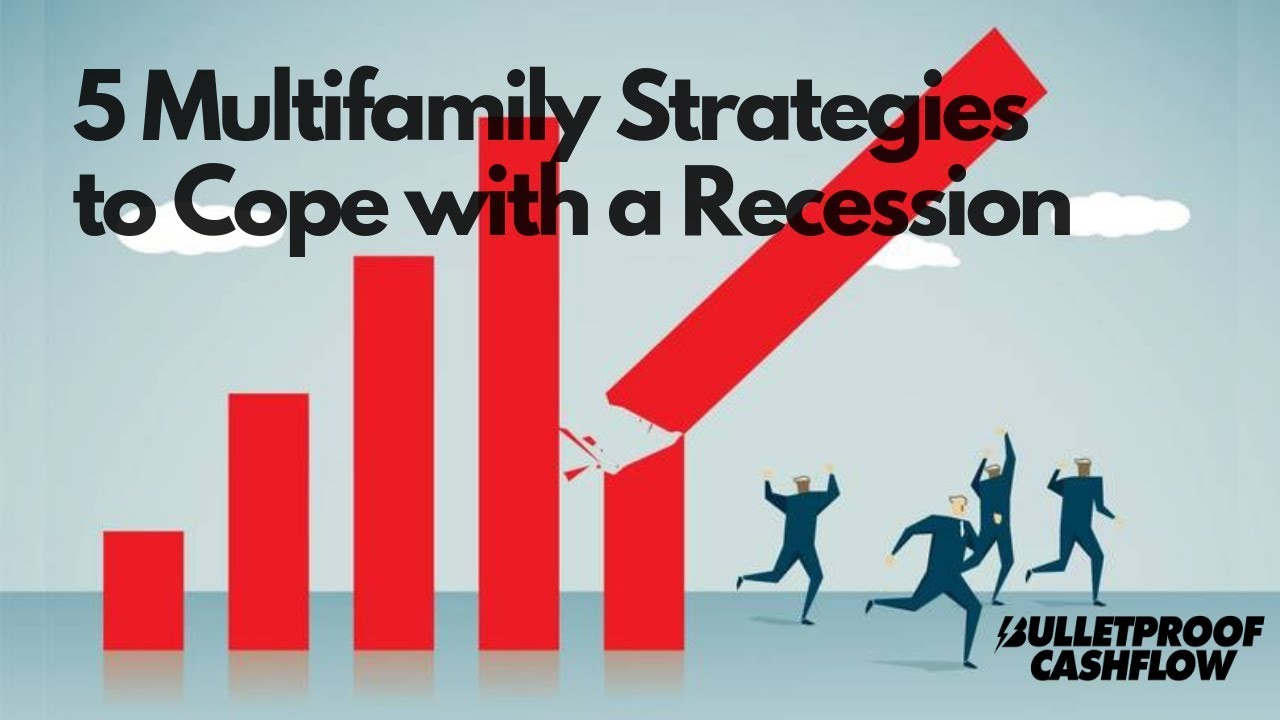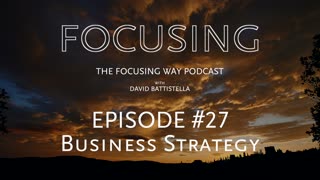Premium Only Content

5 Multifamily Strategies to Cope with a Recession
I’ve been tracking the U.S. economy for some time. Most everyone from economists to multifamily real estate experts agrees that a recession is coming. Billionaire hedge fund investor Ray Dalio agrees that a recession is likely, we just don’t know when.
As of today, mid-April 2019, I would venture to guess that we are one to two years away from a market correction. According to a recent article in the Wall Street Journal, job growth in early 2019 came in below expectations. U.S. Gross Domestic Products growth has been fading since that article, with an annualized rate in excess of 4 percent in the second quarter of last year, and has fallen just a bit. The Federal Reserve Bank forecast suggests that the first quarter of 2019 annual growth rate may fall below 1 percent. I personally believe this to be cyclical, but when the Federal Reserve sees these numbers, they will pull back on their plan to aggressively raise interest rates and shrink its balance sheet.
The thing is, there is no way to know whether to wait 2 years or 8 years; it’s hard to predict. Rather than sitting on the sidelines, my team and I are staying active in the market, always looking for deals. We are tracking prices, looking for the asking and selling prices and watching for how long they are on the market. The best suggestion I give to others is to not overpay just to get into a deal. Buy on actuals and never on speculation or a broker proforma. Rather, be prepared to act quickly; Make certain your equity or down payment lined up, your banking relationships are ready, your credit score is good, and you convey your ability to close.
Here are five strategies to make sure your investments are protected when there is a correction or an all-out recession. These strategies will be good for 2 years or 20 years. They will always be relevant:
1) Always Buy “In Demand” Locations - As long as there are people, there will be a need for housing. When there is a market slowdown, friends and family will move in together to save on living costs. They will likely want to have access to public transit and highways, close to amenities like grocery stores, retail, malls, and hospital and safe neighborhoods. We personally like B- value-add properties that have a lot of nearby commerce, jobs, and population growth.
2) Keep Up With Maintenance - Because people will move in together to save on housing, some owners may see their vacancy rate creep up. Inventory will be on the rise and you will be competing with other landlords for tenant dollars. You will want to make sure your units do not look old, dated and worn out. The competition will be heavy. I would even say that if you are turning units and you are able to put in better materials at a reasonable price, do it while the market is strong so you can recoup your investment faster. I’m not saying to “over-renovate”. Rather, if you are able to get a deal on ceramic flooring for a property that would usually call for vinyl, and the cost is marginal, go for the ceramic.
3) Set Up a Reserve Account - Knowing that a recession is coming, make sure to build up your reserve account to make up for any upcoming vacancies, repairs, and other expenses. If you set aside 7% of the total rent every month for 12 months, you will have one month’s rent saved up in your reserve. If you don’t use it, you can deploy to your investors or make a major improvement that will drive NOI.
4) Have Liquidity - This strategy is related mainly to new deals; Lenders will be hesitant to lend during a slowdown or recession and sellers will be on the lookout for cash buyers. During a recession, the loan to value numbers we see today (75% or 80%) will certainly be much lower. Some lender may not lend at all. Having cash at your disposal - either liquid or lining it up from investors today - will be important to taking down deals when the economic storm comes.
5) Know Your Numbers - Calculate and track your net operating income on a regular basis and know where your break-even point is. Meaning, know what the bottom line number is to cover the mortgage, property management, taxes, insurance, and other expenses. You also want to know what other landlords are renting their units to understand how the market is trending.
If you buy and manage a good property with good strategies, you will always win. Yes, it would be great to pick up deep discounts if you manage to time things perfectly. I believe there is always a deal out there; You just need to work harder to find them. If you are waiting to time the market, you are foregoing the all the gains from today plus cash flow for the coming years. Like all investing, it takes patience and confidence to build success. Ultimately, you will have to make the call yourself on when you’re ready to take on a deal. Regardless, it’s been proven time and time again that getting into long-term, well-positioned and well-managed multifamily will deliver substantial inflation-beating returns.
-
 30:59
30:59
REIMastermindNetwork
4 years agoReal Estate Investing Tax Mitigation Strategies with Joshua Saunders
51 -
 27:23
27:23
Investor Guys Podcast
4 years agoChoosing Strategies
407 -
 1:14
1:14
Craig E. Richardson, MA
4 years agoRelationship Strategies
24 -
 4:33
4:33
KNXV
4 years agoFinancial strategies during the pandemic with Ric Edelman
1.33K -
 8:16
8:16
Focusing
4 years agoTFW-027-Business Strategies and Focusing
13 -
 13:02
13:02
bulletproofcashflow
4 years ago $0.01 earnedMultifamily Syndication: Basics Explained
73 -
 26:38
26:38
Investor Guys Podcast
4 years ago $0.01 earnedMoney Strategies For Getting Started
337 -
 1:10
1:10
The Exeter Group of Companies
4 years agoDid you miss episode 8 of Go Ahead, ASK!?
19 -
 2:26
2:26
WKBW
4 years agoLast-minute shopping strategies for Thanksgiving
1.77K -
 9:55
9:55
bulletproofcashflow
4 years agoWhat Makes Multifamily Recession-Resistant?
1051